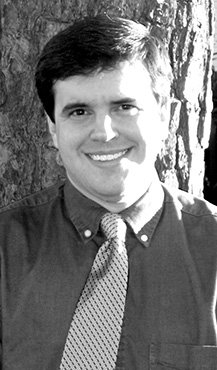Each year, thousands of college students are given the opportunity to continue their studies outside their home countries through a program devised by one Arkansas educator and politician.
The Fulbright Scholar Program has become one of the most prestigious efforts of study thanks to veteran U.S. Senator J. William Fulbright of Fayetteville, who created the program in 1946. His experiences as a student and as an educator convinced him of the importance of expanding the horizons of young scholars as much as possible.
James William Fulbright was born in Sumner, a tiny farm community in central Missouri, in 1905. Within a year, his family moved to Fayetteville, where his father controlled his business interests in banking, bottling and lumber. Education was always an important part of Fulbright’s life. He attended the experimental kindergarten class at the University of Arkansas as a child when kindergarten was almost unheard of.
As a young man, he attended the university, ultimately earning a history degree.
Afterward, Fulbright earned a Rhodes Scholarship for study at Oxford University in Great Britain. The program had been established in 1902 by Cecil Rhodes, a British explorer, politician and mine owner who had made a fortune in Africa. The coveted scholarship is offered to roughly one hundred students around the world each year.
His experiences as a student at Oxford opened his eyes to a wide world of experiences far beyond his upbringing in a small corner of Arkansas had ever offered. Oxford, the oldest university in England, had for eight centuries educated the brightest minds and brought in students from across Europe and eventually the globe to work, learn, and live together. He earned a masters degree from Oxford in 1928 and soon enrolled at the George Washington University Law School in Washington, DC, earning a law degree in 1934.
Fulbright served for two years as an antitrust lawyer for the Department of Justice before returning to Arkansas in 1936. He worked for the University of Arkansas as a law professor from 1936 to 1939. That year, longtime university president John C. Futrall died in a car accident. University trustees decided to choose an internal candidate to succeed Futrall and quickly decided on Fulbright. As president, Fulbright saw thousands of students from all walks of life come through the university and understood the importance and prestige that a university education offered.
When Fulbright was elected to Congress during World War II, he brought an international perspective with him. In 1943, he pushed through a resolution calling for the United States to create new international organizations dedicated to peace, such as the United Nations. The measure, later called the Fulbright Resolution, passed by a vote of 360 to 29.
As the war came to a close, the newly elected Senator recognized how much the world had changed. The old world was gone, where nations, businesses and scholars could stay insulate themselves from the rest of the globe. Overall, a lasting peace among nations required more than just agreements among politicians. The people had to be involved, and education was the key to peace.
Modeled on the Rhodes Scholar idea, Fulbright sponsored the creation of the Fulbright Scholar Program to send American students abroad and to bring international students to the United States. Fulbright’s proposal, in fact, was designed to reach many more students than the Rhodes Scholar program had. In the process, students would learn about foreign cultures and, Fulbright believed, about the importance of American democratic ideals.
He mused on how differently international politics could have changed if America’s adversaries had been exposed to American ideas as part of their education.
“What a fine thing it would be if Mr. [Joseph] Stalin or Mr. [Soviet Foreign Minister Vyacheslav] Molotov could have gone… to Columbia in their youth,” remarked Fulbright as he pushed the initiative.
Fulbright found an ingenious way to fund the expansive new international scholarship program with very little effort. The program was initially financed through sales of unneeded and excess military supplies — that is, war surplus — by slightly amending the 1944 Surplus Property Act. The entire scholarship would be administered through the state department.
The program was signed into law by President Harry S. Truman on August 1, 1946.
The program quickly became a monumental success. The program has included in its ranks 33 heads of state, 59 Nobel Prize winners and 82 Pulitzer Prize winners, easily some of the most influential minds of the past 70 years. The program has expanded to include researchers and teachers as well.
More than 300,000 students worldwide have participated in the Fulbright program, including more than 120,000 from just the United States. More than 150 nations participate.
Fulbright allowed the world to become a classroom. In the process, students learned not only how to build their own lives, but how to work with others and preserve peace.
Dr. Ken Bridges is a professor of history and geography at South Arkansas Community College in El Dorado and a resident historian for the South Arkansas Historical Preservation Society. Bridges can be reached by email at kbridges@ southark.edu.
